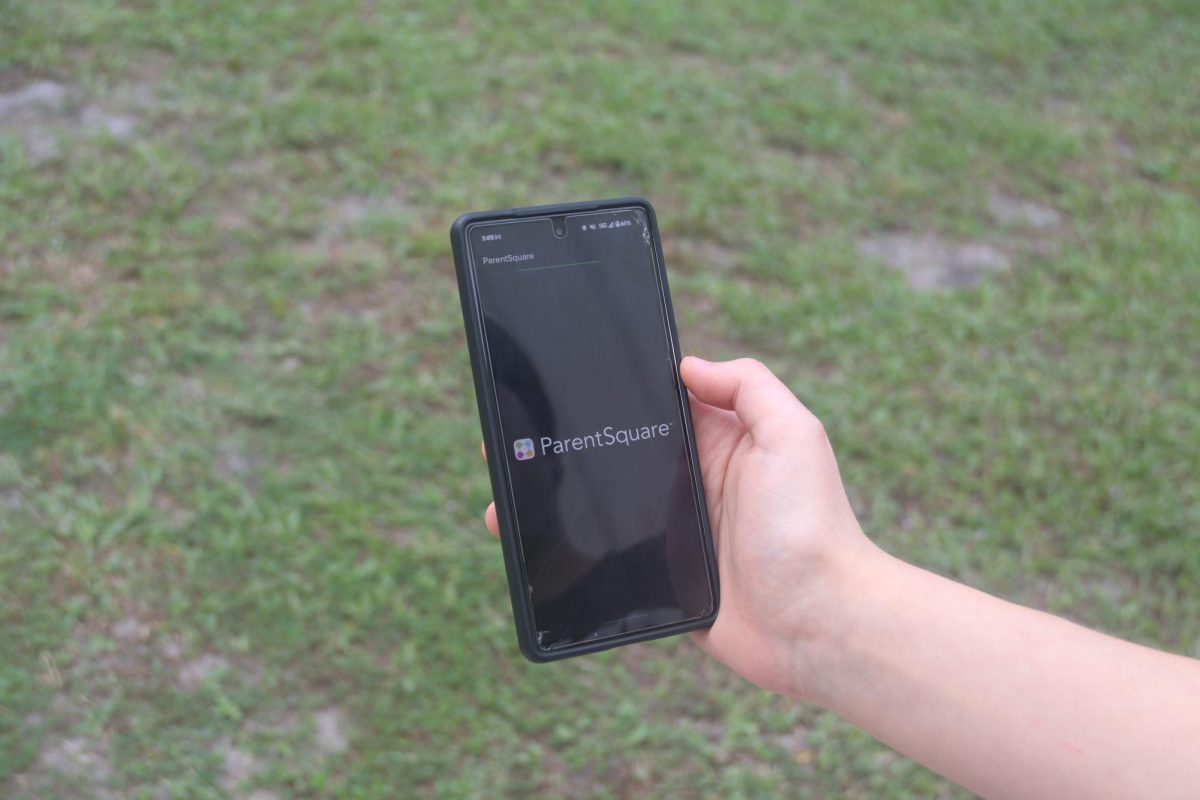Purplish blue waves reflect the sun’s descent as they softly lap against the hull. Seafoam sprays, dusting the inside of the wooden boat like the splatters of a painter softly tapping a paintbrush, as the sounds of the whispering water, the creaking of the oak, and singing gulls blend into a symphonic masterpiece. Just like the ocean, L.S. Dunes’ new record Violet bridges the talents of several talented musicians into an equally tranquil and turbulent work of art.
The band itself is a pet project composed of a clash of musicians: Circa Survive’s Anthony Green (vocals), Thursday’s Tucker Rule (drums) and Tim Payne (bassist), Coheed and Cambria’s Travis Stever (lead guitarist), and My Chemical Romance’s Frank Iero (rhythm guitar). Nearly every member in the band has mentioned the creation of Violet felt more consistent than their previous work.
Composed of only ten songs, Violet is similar to the debut album Past Lives’ with its calm and nostalgic aesthetic, but remains unique and interesting for the listener. Violet is not unlike the debut album Past Lives’ calmer, more nostalgic cousin. While it retains the same fiery elements, clever lyricism, and creative instrumentals, it still carves itself a distinct path from the first album: it seems much more coherent than their previous work and works together in a very symbiotic way. The beginning of this musical journey climbs from a slower, sadder tune until it crescendos in the middle, slowly falling back down to the feelings enunciated in the beginning.
Oddly nostalgic, the record starts off strong with the song “Like Magick” that smoothly introduces Green’s echoing, isolated vocals, almost soft like a lullaby that soothingly washes over the listener. While the song is gentle in nature, it still packs a punch with melancholic lyrics and clever instrumentals, the gain crackling like the soft crunch of autumn leaves.
The chorus of the next two songs, “Fatal Deluxe” and “I Can See it Now…”, are similar: both are catchy and paired with rhythmic background vocals that ultimately deepen the intricately layered song. The repetition of the word ‘pressure’ is utilized in the latter, along with Green’s scream-singing in the background, truly simulates this feeling, as the cacophony between collected and frustrated resembles an internal monologue an individual may have when backed into a corner.
The title track, “Violet”, also mirrors the slower and tense feelings situated in this record, making it suitably named the same as the entire album. Green switches between an electrically charged voice to one of soft despondence, illustrating an internal push-and-pull. It feels warm — yet regretful — combining aspects of Green’s soothing voice, and comforting and seamless guitars.
The following song is uniquely inspirational. While cloaked in the album’s familiar emotions of regret and frustration, “Machines” is a hymn of stepping forward into the “right direction” and creating a path to distance yourself from the parasitic grasp of the past. Even the chorus makes the listener feel like they are being pulled up on their feet in honor of a fighting chance.
Speedy tempo meets funky riffs in “You Deserve To Be Haunted”, which reflects L.S. Dunes’ talent at fusing many musical components without making it feel chaotic. The first line states “we all forget our magic”, which seems to be a focal point of every song featured. Green mentioned in their making of video that “magic is real” and that music can be that magic for people — that heals them internally — in a way that literal medicine may not. The lyricism directly embeds themes of internal struggle, addiction, and acceptance, confronting listeners with these hardships. It is something fans can resonate with, allowing for a mental healing process. And similarly, “Holograms” uses the metaphor of fairy tales to demonstrate that unlike fairy tales, the ending is not always favorable, or alternatively, that the “magic” may not always guide us on a comfortable journey, like with self-reflection.
The album slowly progresses to a close, with the pre-released song “Paper Tigers”, its mood extending to the final two songs, “Things I Thought Would Last Forever” and melancholy “Forgiveness”. The slow tempo, crackling guitar, and smooth background vocals create an introspective mood that pulls at the heartstrings, washing over the listener like the calm tides of the sea. With it, it brings the salt of past memories, an often bitter taste against the sweetness of the water. A reminder that to tread water is to not drown.







































